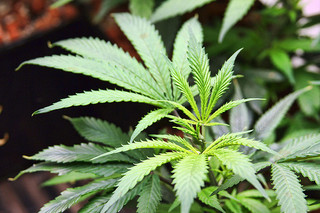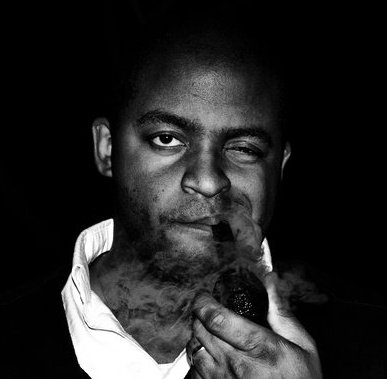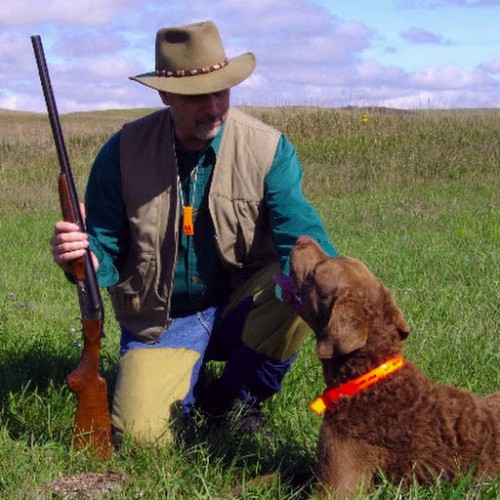On Jan. 1 Colorado became the first U.S. state to legalize the open sale of recreational marijuana and the first state to regulate the plant from seed to sale. In November 2012 residents voted to legalize cannabis and the state’s legislature added Amendment 64 to its constitution. Over a year later, the stage was set for 36 retail outlets to open for business with 160 more waiting in the wings.

Photo courtesy of Flickr’s Coleen Danger
Today we take a look at Colorado’s landmark decision. Did Colorado make the right choice? Have there been any unforeseen consequences? Will other states follow? With differing voices from around the country and from different minority faiths, we’ll consider the standing issues facing Colorado and the nation.

T. Thorn Coyle
According to a 2011 FBI Report, “The trafficking and abuse of illicit drugs in the United States create an enormous drain on the economic, physical, and social health of American society. In 2007 alone, the estimated cost of illicit drug use to society was $193 billion.” Of all drug-arrests, 50% are for the possession or sale marijuana alone. The media calls the war on drugs “a trillion dollar failure.”
Pagan author and teacher, T. Thorn Coyle, remarked:
I was raised by an alcoholic and saw firsthand the scourge of out of control drug use. Yet prohibition is not the answer. Treatment is the answer. I see my local communities ripped apart by the prison industrial complex and the increased militarization of police. I see more money poured into incarceration than education. This is not the society I wish to uphold…Decriminalizing or legalizing drugs will go a long way toward solving many of our social ills.

Tata Christopher Bradford
Agreeing, Tata Christopher Bradford said, “For too long these sort of drug laws have been used to press and terrorize minority populations. Any law that takes away one of those tools is fine by me.”
Colorado native, Peter Dybing adds, “In my work at a local Detox unit we no longer accept admissions based on THC intoxication. This policy is a direct reflection of the fact that marijuana use in itself poses no significant safety risks.”
While those arguments alone maybe compelling, the pros of legalization extend well-beyond recreational usage – most notably, its medicinal benefits. Twenty states and the District of Columbia currently allow the use of medicinal marijuana. Denver Asatru resident Kristen Sherman began using medical marijuana after surgery when traditional medications weren’t possible. She says, “The green medicine has helped me a great deal. It’s not perfect, but I do have increased mobility and am able to sleep better at night as I am not in as much pain.”

Chas Clifton
There is also a lesser-known ecological benefit to cannabis legalization. Colorado Native Chas Clifton explains marijuana’s low-THC cousin, Hemp, is “a low-pesticide, lower-water-use crop with many uses.” In March, Colorado will begin registering Hemp producers as part of the new laws. Last October a Colorado farmer became the first to harvest Hemp in the United States in 57 years.
Despite all these positives, implementation has not quite been as simple as waving a magic wand. The reversal of such long-standing legislation, rife with cultural baggage and bias, comes with many hurdles. Chas stated it best when he wrote on his blog, “There is a lot to sort out here.”
The biggest obstacle stems from the fact that marijuana is still illegal at the federal level. The Drug Enforcement Administration recently called Colorado laws “reckless and irresponsible.” Due to this legal discrepancy, many banks refuse to work with the retail shops for fear of federal prosecution. These legally registered Colorado retail stores are currently forced to operate as cash-only businesses with all the associated stigmas and dangers. To assist, the state allows store and dispensary owners to store firearms in their facilities.

Kristen Sherman
Another major concern is the underground market which is not projected to go away anytime soon. A dealer told the Pueblo Chieftan, “When the novelty wears off, people will be tired of having to go to the stores and paying much higher prices for the same weed. Street dealers will charge less, and we deliver, just like (pizza joints).”
Another byproduct of Colorado’s changing legislation has been the discovery of large-scale illegal marijuana cultivation operations in its national forests. The Forestry Service has been fighting this particular battle since 2009. Chas Clifton explains, “Illegal growers on public lands…pollute streams with fertilizer and pesticide, leave a mess, and threaten other users of that land with physical violence, sometimes resulting in death.” The illegally grown product is reportedly being shipped east and sold in states where use is still criminalized.
Finally Wild Hunt Columnist Crystal Blanton, who is professional social worker and registered addiction specialist in California, remarks, “Professionals in the field are very concerned about the impact of legalization on addiction. There are a lot of new studies addressing the [effects] of marijuana on the body and correlations with addictive patterns.” She points out that all cannabis cannot be treated equally. There are differences.
These are only a few of the obstacles that need addressing. Is all of this worth it? Kristen Sherman believes it is. She said, “[Legalization] has a bit of a struggle from the anti-drug lobby, and has quite a way to go before acceptance is the norm… Those who use marijuana are often vilified or portrayed as lazy stoners who sit on their couches all day munching on Doritos… We have over 60 years of prohibition and misinformation to chip away at.”

Peter Dybing
Tata Christopher Bradford agrees saying, “The potential marijuana has as a medicine makes it very important that we legalize it throughout the country. Let’s hope this move is just the beginning.”
After recently moving back to his home state, Peter Dybing was “surprised to see open cultivation and usage among friends.” He adds, “These new laws reflect what professionals in the field have been saying for years. The former THC laws waist money, time, legal and mental health resources and represent a poor prioritization of community efforts.”
T. Thorn Coyle adds, “Prohibitionists cling to Calvinist morality, which leads us to a deeper question: why is our pluralist society being run by Puritan morals? I ask that as a person who sees direct evidence of the harm the War on Drugs has done. I ask that as a Pagan.” She adds, “I am very heartened by the ruling in Colorado. I hope it spreads.”

Link
Link, a Witch living in Miami Beach, Florida, said:
We tend to look at changes in laws … as isolated events. But those [events] work together to become … parts of a larger story.This story tells of a society waking up and sorting through all the outdated laws it has inherited from past generations, some dating back to biblical times. Civil rights, women’s rights, legal divorce, immigration reform, legal abortion, birth control, religious freedoms, reformed marriage laws and – most recently – the legalization of marijuana all recognize that personal freedoms outweighs the archaic repression of the past. Hopefully this trend will continue, and we will examine what other laws criminalize very normal parts of life.

Suretha Thacker
Suretha Thacker, solitary Wiccan from Georgia, believes the growing interest in full legalization will continue. She says, “I do feel that other states will adapt similar laws after seeing how Colorado and Washington handle any issues that arise. Especially if the high taxes raised from the purchase of marijuana products contribute equitably to the state.”
Where does your state stand? Here are just a few state policy changes being made or considered since Jan. 1 2014.
- For more information on Colorado’s new laws, see NORML’s list of Doobie-Dos.
- In Washington, recreational pot is legal and retail stores are set to open later this year.
- Alaska residents submitted a petition to put “recreational marijuana” on this year’s ballot.
- Michigan is moving slowly toward legalization and protecting the hemp industry.
- In Florida, signatures are being gathered to put a “medicinal marijuana” referendum on the ballot this year. The legislature may introduce a bill sooner.
- The District of Columbia will be considering a measure to decriminalize recreational marijuana.
- Pennsylvania Senate introduced a medicinal marijuana bill last week.
- New Hampshire’s House “passes recreational marijuana” legislation.
- Missouri’s governor approved the “legalization initiatives for signature-gathering.”
- Maryland legislators will simultaneously face a bill to legalize marijuana and a bill to decriminalize it.
- West Virginia and Georgia law makers have reportedly begun investigating the possibility of introducing medicinal marijuana.
- New York Governor Cuomo has allowed limited medical marijuana in designated hospitals.
The Wild Hunt is not responsible for links to external content.
To join a conversation on this post:
Visit our The Wild Hunt subreddit! Point your favorite browser to https://www.reddit.com/r/The_Wild_Hunt_News/, then click “JOIN”. Make sure to click the bell, too, to be notified of new articles posted to our subreddit.
What a great article! Especially at a time when many of our elders in our community are undergoing chemotherapy and suffer severe arthritis and other problems that can be helped by natural cannabis.
Witches work with the world of plants and cannabis is a very powerful herb that was used by old world witches in the “flying ointments” and other concoctions.
But when an American is arrested every 48 seconds for simply possessing cannabis, this is obviously bad laws that need to be reformed, not unlike the witchcraft acts.
“Old world” users would have not had the high THC cannabis, as that was a “Colonial” plant.
They would have had low THC hemp. Far more useful for its fibre than for its “herbal” properties.
The stuff grown for cordage was low THC, but hashish has been available in the Near East since agriculture began, and available in Western Europe at least since the Napoleonic times.
Relatively high-THC hemp seems to have been in use in Europe and Asia for quite a long time. Archaeological evidence shows that there was the burning of hemp in special vessels in the areas to the north of the Black Sea and the Caucasus mountains as much as 6,000 years ago. Indeed, it may have been a major export from this area on the north-south trade route with Sumeria.
Oh, also, it doesn’t make much sense to talk of hemp and cannabis as though they were distinct from one another. “Hemp” is just the native English word referring to the same thing as Greek “kannabis”. Both are ultimately loanwords from some other source – possibly Thracian, possibly non-Indo-European – and they are initially the same word: pre-Germanic “*kanibis” undergoes the 1st sound change and becomes “*hanipiz”, which then becomes Old English “hænep”, and then Modern English “hemp”.
My internal pedant being now satisfied, I shall read with interest the rest of the comments.
They’re distinct in an agricultural sense if not a taxonomic one. It’s all a matter of selective breeding and growing practices for the intended end use. The stuff grown for hemp is utterly worthless as a drug plant. Alternatively, the resinous stubby branching drug plants wouldn’t be worth any ropemaker or sailmaker’s time. Ironically, police have often aided illegal growers by eradicating hemp-grade “ditchweed”.
I remember when I used to live in a county which had a large hemp program in World War II. Descendants of those plants were still around, and newb college students would smoke a fistful of the stuff to try to get high (they never did).
Periodically, the cops would cut down a heap of it and burn it, and issue a press release saying that they had saved the children from cannabis with a “street value” of x bazillion dollars!
Illegal cultivations and attendant violence and pollution are indeed a sore point of legalization. Let’s be mindful up front that continued prohibition of cannabis elsewhere is at the heart of this problem, leading to such cartel behavior, and not cultivation itself. And there is a straightforward, nonviolent solution to which, to date, no heed has been paid by officialdom afaik. The psychoactive plant is the female, and she stop producing THC as soon as she’s been pollenated. Sticky THC is her evolved strategy to capture pollen. Every plant in a cultivated stand must be female, or the males will halt the THC production process well short of a level that commercially justifies the investment. So all the cops need do is grow their own cannabis, a carefully honed stand of male plants. When they develop pollen, grind up the whole thing, rent an agricultural duster and spray the suspected areas. One need not even separate the pollen; the disseminator will need the mass of the whole plant to work on. The illegal stand, once pollenated, will stop making THC and the crop will be commercially worthless ditchweed. I’ve been trying to point law enforcement toward this approach for twenty years, but that community seems captive to the Rambo approach of helicopters and machetes. Try a little applied botany, folks.
Couple flaws with your plan. One, you’re proposing a scientific solution to a drug war which is as scientific as Young Earth Creationism.
Second, pollinating crops in the manner you describe would not zero out THC production. The pollinated plants would produce seeds and therefore cut yield, but they wouldn’t turn male, and the seeds produces would not all yield males in the next generation. Sex is determined by a complex mix of genes and environment in these plants which is much less straightforward than our XY system.
Keep in mind that seedy marijuana was the norm for most of the 77-year history of prohibition. Until quite recently, the U.S. market at least was dominated by “brick weed” from Mexico. It was full of seeds and demanded a whole separate “cleaning” ritual, but people were getting plenty stoned long before sinsemilla and indoor growing became the norm.
On a purely practical level, I’m not sure the delivery system you propose would work or be cost effective. Crop dusting usually works by applying a fluid mist from a consistent height over nice level fields. Illegal weed grows tend to have forest cover, mountainous terrain etc. Pollen would likely fly away and disperse before much of it settled on the target. You could probably induce male morphology in the plants with hormones like gibberellin, but that wouldn’t be cost-effective or environmentally sound. The only way to win a drug war is to not wage one. If you want to get rid of the black market, create a legal and regulated one.
I certainly agree with your first and last points. Producing seed rather than consumables is not within the business model of the illegal grower. Perhaps my delivery system needs tweaking.
Technically, Washington may be set to open retail stores later this year, but in practice they’re already open. I live in Spokane and there’s a medical marijuana store down the street from my apartment and my mom walked in and bought some a couple weeks ago with no prescription.
When I was in prison most of the Pagan prisoners, including myself, were in for pot and psychedelics. This is really bad when you consider
that drug/witchhunts have been going on for hundreds of years and that these substances have been proven by scientific institutions to have medical, therapuetic and spiritual value